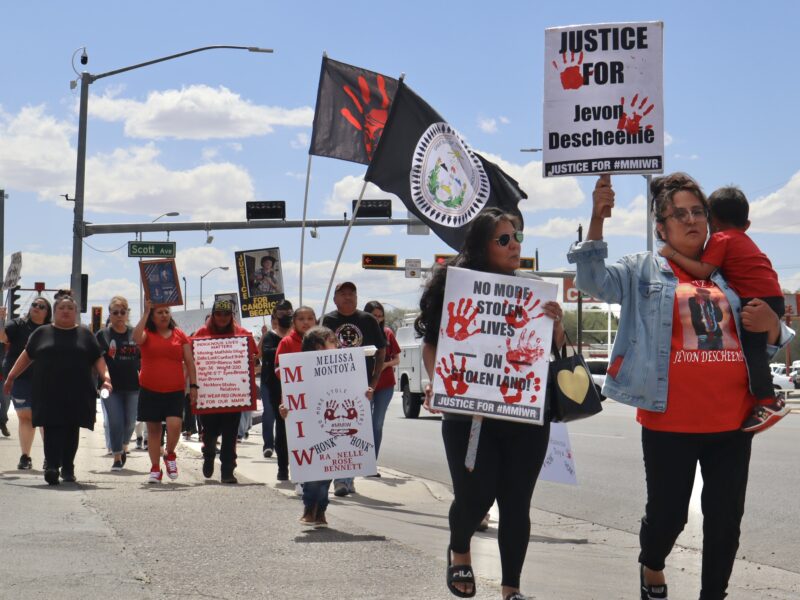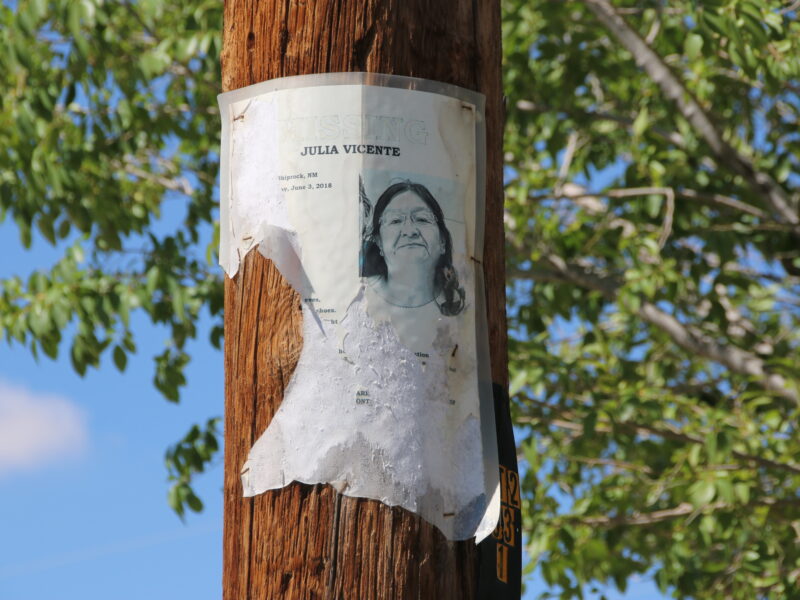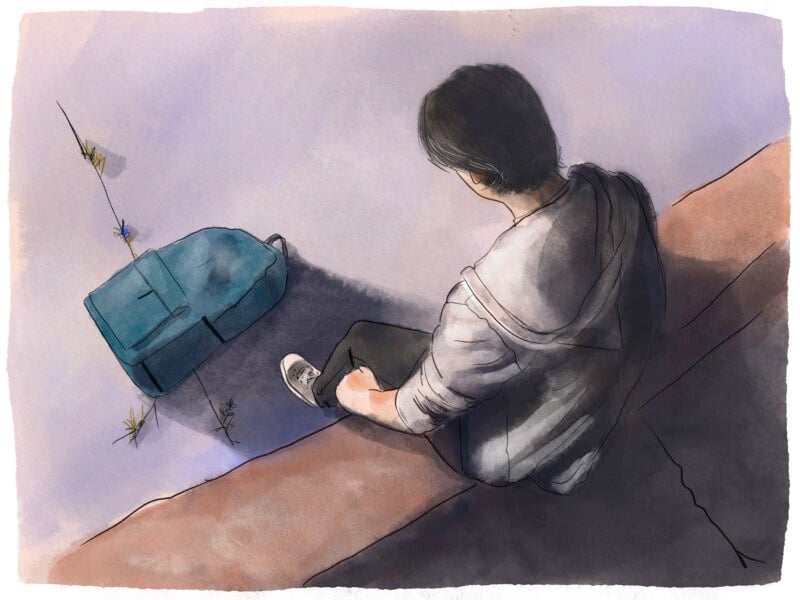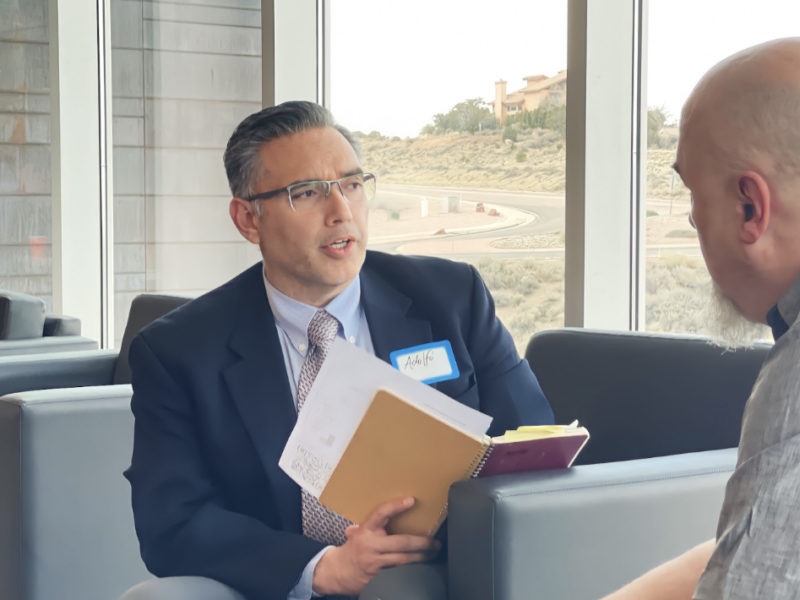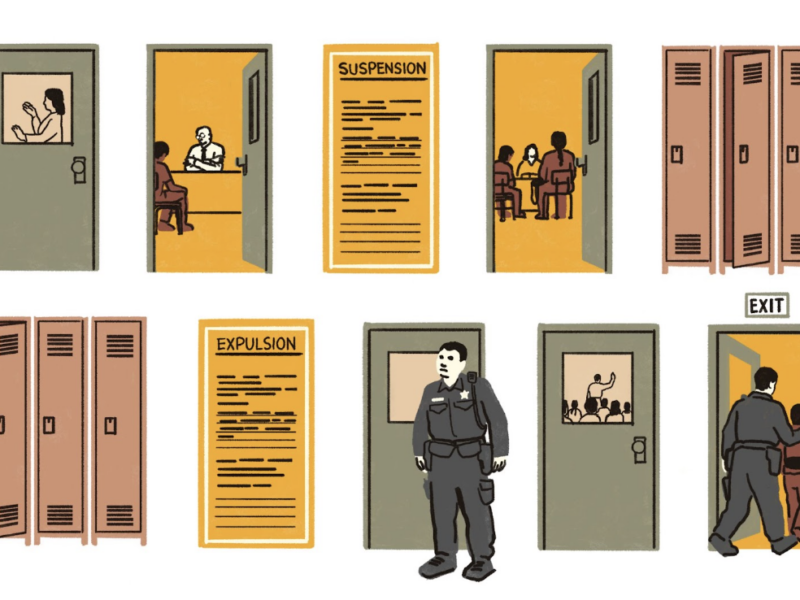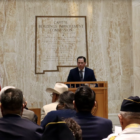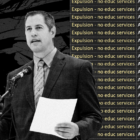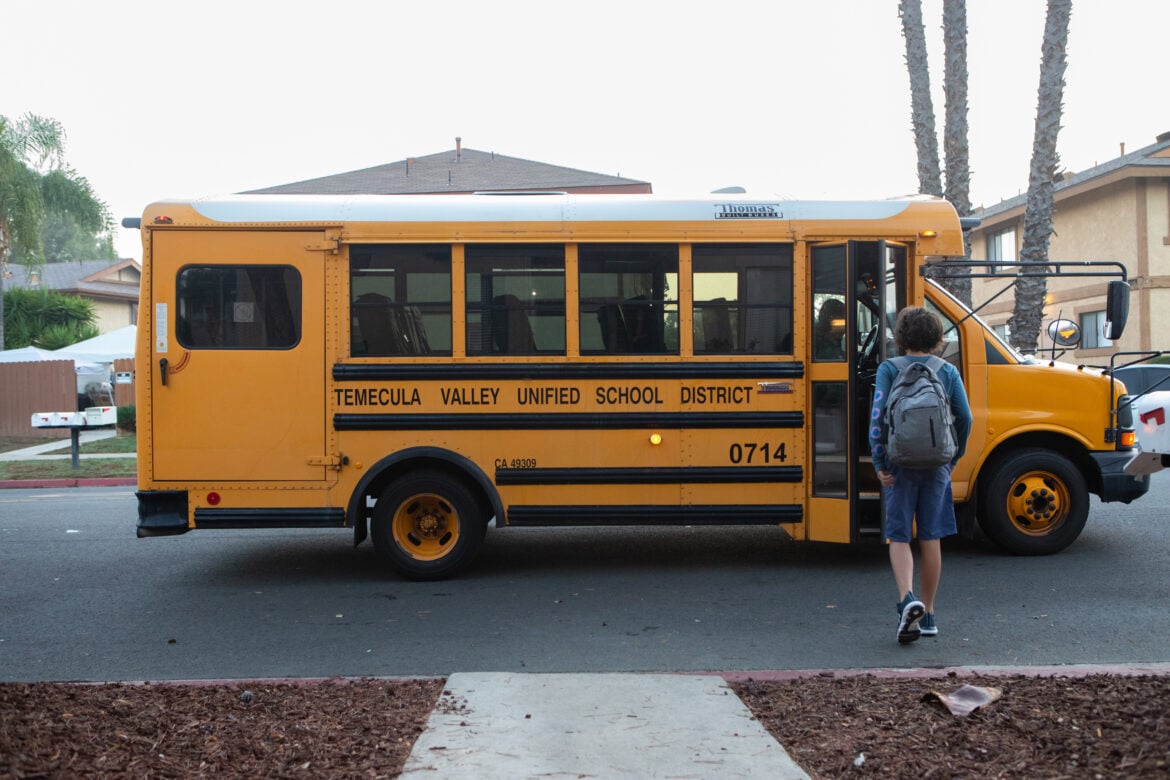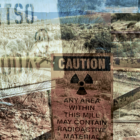Growing up in Albuquerque, high school junior Brook Chavez, who is Diné, never had a Native American teacher until last year, when she took a Navajo language and culture class.
There, the 16 year old learned more about her culture and connected with other Diné youth, coming away prouder about who she is. She felt understood by her teacher, David Scott, also Diné, in ways she hasn’t always in the classroom.
“I learned a lot about my clans, my stories,” Chavez said, adding that at the end of the first semester, she and her classmates performed at Native American Winter Stories, an Albuquerque Public Schools (APS) event. “That’s one of my fondest memories because I got to dress up traditional with all my friends.”
Chavez just wishes she hadn’t had to wait so long.
There’s consensus among advocates and education officials that it’s important for teacher workforces to be representative of student populations, which research shows is linked to better student outcomes. Same-race teachers can act as important advocates and role models. But Chavez’s experience is one that many Native American children attending school in Albuquerque are unlikely to have in the classroom, at least in the near future.
While parents of nearly 10% of APS students report they have tribal affiliations, only 1.2% of teachers the district employed during the last school year were Native American, according to district data.
The state Public Education Department identified increasing racial diversity among teachers as a priority in its draft plan released in May in response to Yazzie/Martinez v. State of New Mexico, a 2018 court ruling that found the state has failed to provide an adequate education to Native children, among other student groups.
And district officials in Albuquerque say they’re working to hire more Native American teachers.
